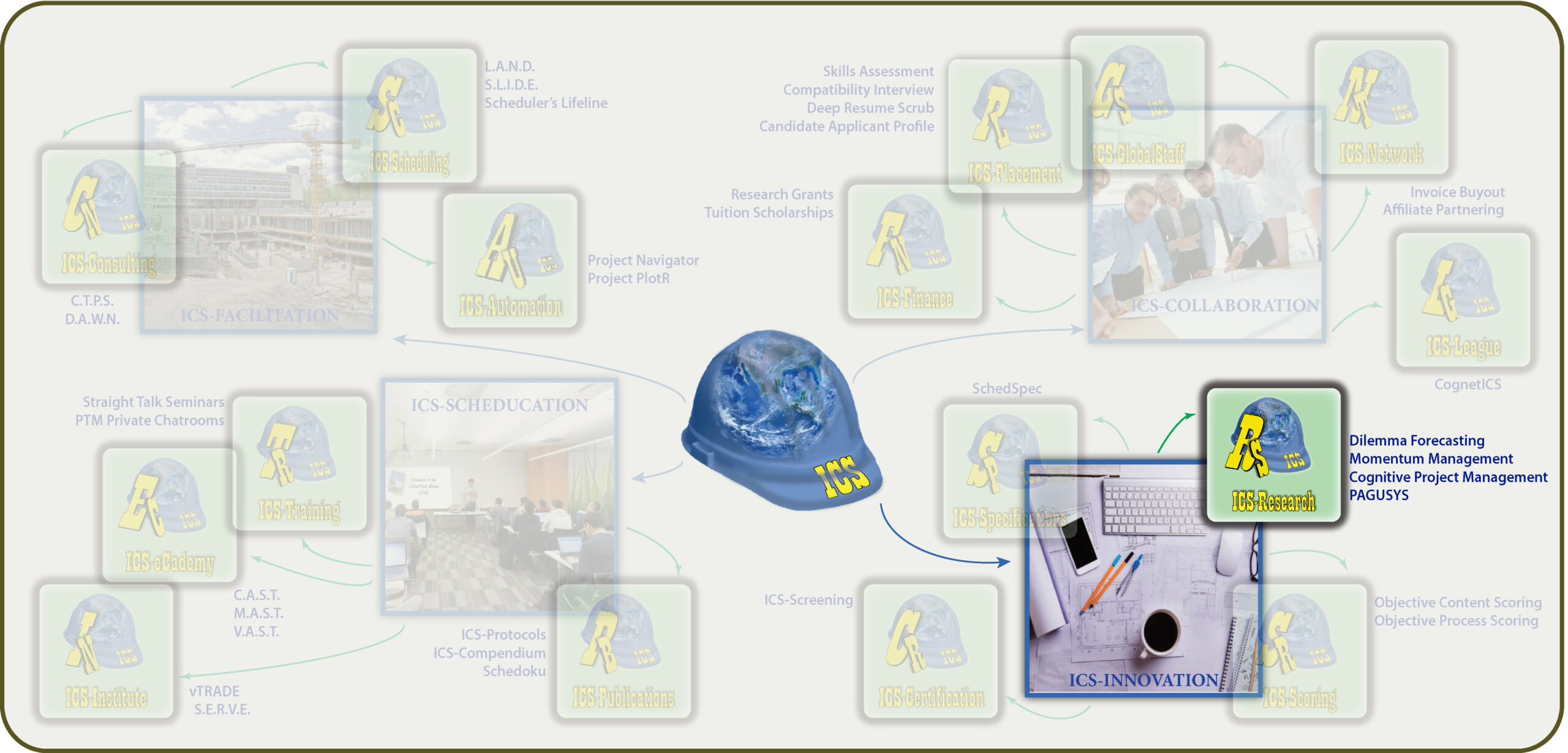What ICS-Research Is All About
ICS-Research conducts ongoing scholarly studies which lead to discoveries and reports about Construction Project Time Management. Its work products provide empirical data necessary to sharpen the cutting edge of Construction PTM, and inspire Research Studies in the academic world.
Construction Project Time Management has long needed an independent clearinghouse for review and appraisal of new products, services, concepts, and theories. The Construction Industry in North America needs — and deserves – more credible information upon which to make informed decisions than just slick marketing hype and gratuitous self-promotion.
Why ICS-Research Was Created
As a singular unified, where is Construction Project Time Management headed? Who is leading the charge? Is there a captain on the bridge, at the helm?
Across its remarkable and often tumultuous 50-year history, Construction PTM has evolved without the guidance of any coordinated Master Plan. A bit ironic, don’t you think — given that we’re planners? With the smallest of individual steps, the Construction Project Time Management has traveled down a long, winding, and sometimes circular route, to where it is today.
In the early days — circa 1960 — at the time of Critical Path Method’s invention, the discipline was known simply as Scheduling. Over the next couple decades, this expanded to Planning and Scheduling, although there was significant disagreement on what each of these two key tems meant.
By the time the Project Management Institute issued its first Project Management Body of Knowledge tome, the discipline was renamed Project Time Management. Ironically, beyond the first paragraph of the Project Time Management chapter, PMBOK continued to refer to the process group as Scheduling.
To date, no entity that we are aware of – except for ICS-Global – addresses the broad Project Management disciple of Construction Project Time Management. The slapdash treatment of Construction PTM comes from disconnected origins:
What Do We Really Know?
Today’s Construction PTM practitioner is being tossed about in a stormy sea of confusing and cluttered information. Needed — desperately needed — is purposeful, structured, and objective research, conducted by professional researchers, who will sift through all of the noise and misinformation and show us what is true!
Coordinated Research
Unfortunately, most researchers lack any real understanding of what is useful, what is esoteric, and what is simply worthless. That is why we conceived of ICS-Research, to act as a go-between. Working with the world’s leading universities and think tanks, ICS-Research administers an ongoing research program designed to generate and provide reliable, proven, and substantive insights into all aspects of Construction PTM function and philosophy.
For this reason, ICS-Research has devoted thousands of hours to a decades-long effort to fully clarify Construction PTM in terms of definitions, roles, responsibilities, frameworks, principles, formulas, terminology, standards, processes, procedures, and guidelines.
Whom ICS-Research Is Intended to Serve
E—e.
How ICS-Research Is Organized and Functions
The future of any enterprise is bleak if it does not continuously reinvent itself. ICS‑Research incorporates what just as easily could have been called a nurturing center for creative thought. Anything that dares to think outside the box falls under ICS‑Research. An immediate example is the good work being done on Momentum Management, which holds promise of becoming the greatest enhancement to Construction Project Time Management since the creation of the Critical Path Method.
Another responsibility of ICS‑Research is to commission and oversee objective Research Studies performed by academics and funded through Research Grants managed by ICS‑Finance. But more than anything else, ICS‑Research is a think tank for Construction Project Time Management. In its 15‑year history, it has amassed an impressive portfolio of thought‑leading innovations.
Here are brief descriptions of some of the more seminal contributions of ICS‑Research.





